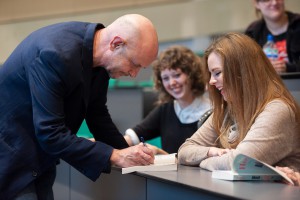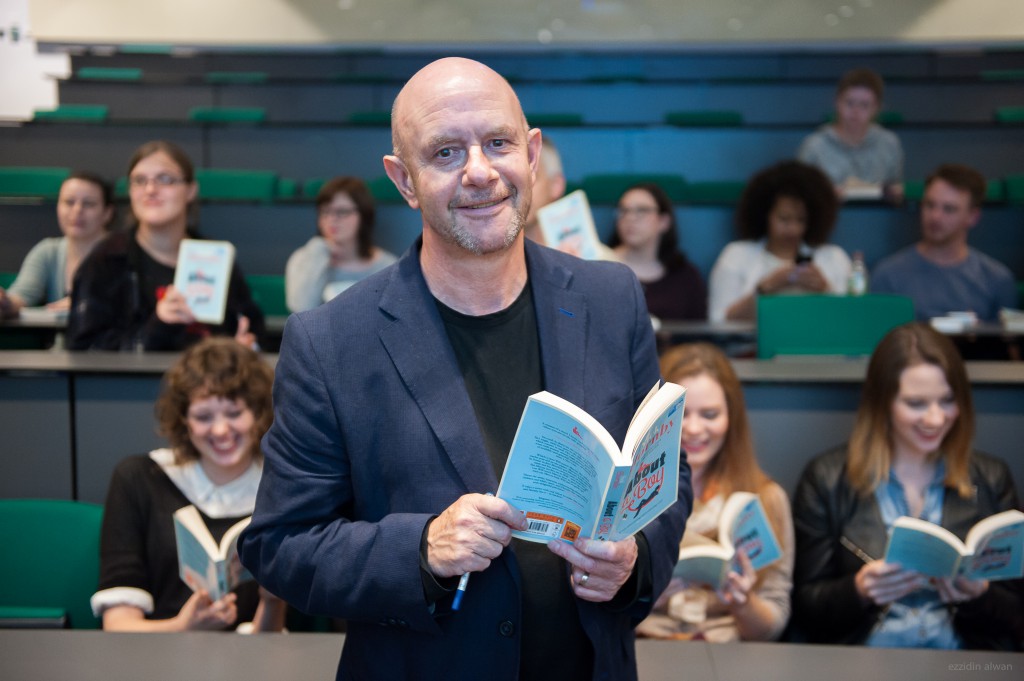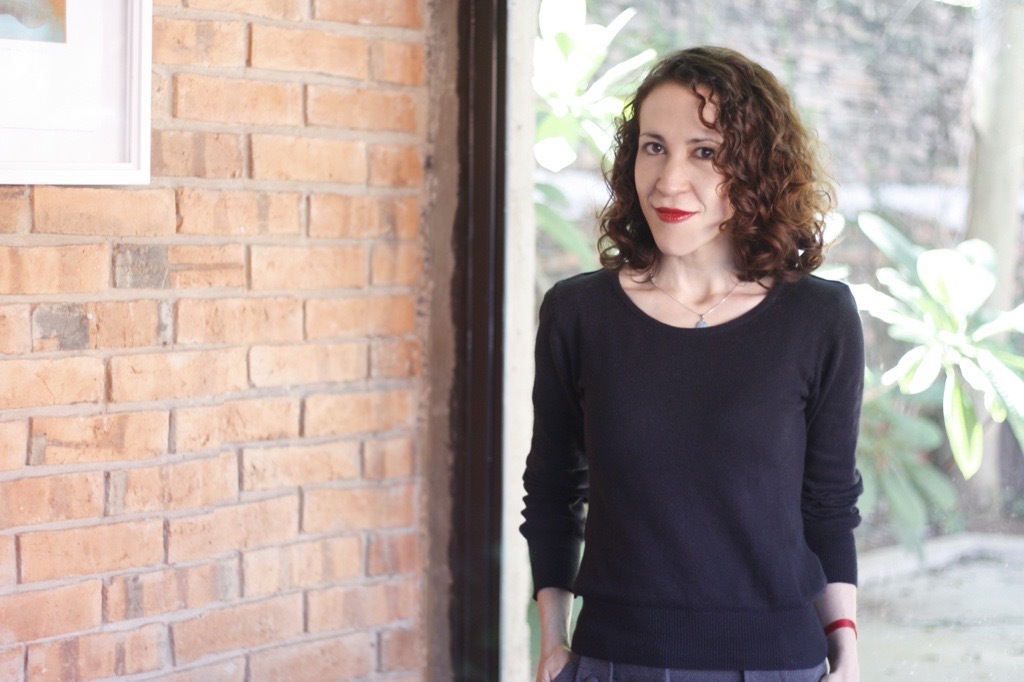
Nick Hornby signs his books at KU Big Read. Credit: Ezzidin Alwan/Kingston University London
Students starting an undergraduate or masters degree at Kingston University this year were all sent a special copy of About a Boy by Nick Hornby.
Starting university can be a nerve-racking experience. Few of us could credibly claim to have enjoyed every second of freshers’ week, or to have sailed through the first term without moments of panic or confusion. The newness of it all is a challenge for everyone, which is why it is important that universities instil a sense of belonging in students and prepare them for the times ahead.
Like all Alliance universities, Kingston works hard to do both. Its freshers’ week in late September is actually called ‘Welcome Week’. Beyond the usual display of sports and social opportunities (the choice is overwhelming) the focus is on helping students adapt. Seminars are put on so that newcomers, including postgraduates, can navigate their way through the town and campus. The university holds writing workshops and sessions on mindfulness. A particularly helpful room has been set up to enable people to sign up to a local GP, learn about working on campus or to look at studying abroad.
The biggest innovation, however, has only just been unveiled this year. Over the summer holidays, students due to start an undergraduate or master’s degree were sent a copy of ‘About a Boy’ by the bestselling novelist Nick Hornby. Accompanying the book (a bespoke version displaying the university’s branding) was a signed letter by the author, who completed his teacher training at Kingston in the early 1980s. During the first term, students and staff are being encouraged to discuss the novel in a variety of settings – the inaugural ‘KU Big Read’.
The initiative is the first of its kind in the UK but the inspiration comes from America. Similar book schemes introduced at US colleges have shown that students are more likely to enrol and settle in. They are also less likely to drop out. A research project set up as part of Kingston’s Student Academic Development Research Associate Scheme (SADRAS) – a funding pot for student and staff collaboration – revealed the potential for undertaking a mass reading initiative at the university. Kingston’s Vice-Chancellor Julius Weinberg got behind the idea and, in less than six months, it became reality.
Leading the project is Associate Professor Alison Baverstock, an experienced publisher and co-founder of the MA in Publishing at Kingston. She says the Big Read ‘aims to enhance a sense of community amongst students and staff from the whole organisation, whatever their role, discipline or geographic location’.
Indeed, an observable aspect of Welcome Week was the effect the initiative was having on university staff. Everyone, from reception through to the library and student services, had something good to say about it. A balloon debate at the end of October will allow academics as well as administrative staff to discuss how the themes of the book relate to their research, teaching, and professional and personal interests.
Students seem to care as well. One welcomed the Big Read as an “icebreaker”. Another said the book felt like a “gift” from the university. Elle Waddington, who has just started the MA in Publishing after working on the Big Read as a Kingston undergraduate, said: “It’s about integration and access to literature, and something the students won’t forget in a while.”
“I’m proud to have been part of a team that has done something so amazing for literacy and the community”, she added.
It is too early to judge the success of the KU Big Read but the signs are promising. Demand for the book among staff was such that an extra 2,000 copies had to be printed on top of the original 10,000. 12,000 technically constitutes a bestseller in the publishing world. And a Q&A with Nick Hornby during Welcome Week offered students and staff the chance to get their book signed by the author himself.
More importantly though, the impact of Big Read is being carefully monitored. Kingston will be looking for effects on student enrolment and retention. It will also be establishing a student-staff committee to assess the Big Read and decide which book to use next year. With more pressure being placed on universities to measure impact, the evidence-based approach Kingston is taking to this initiative can only be seen as a positive.
Read more about the KU Big Read here.




